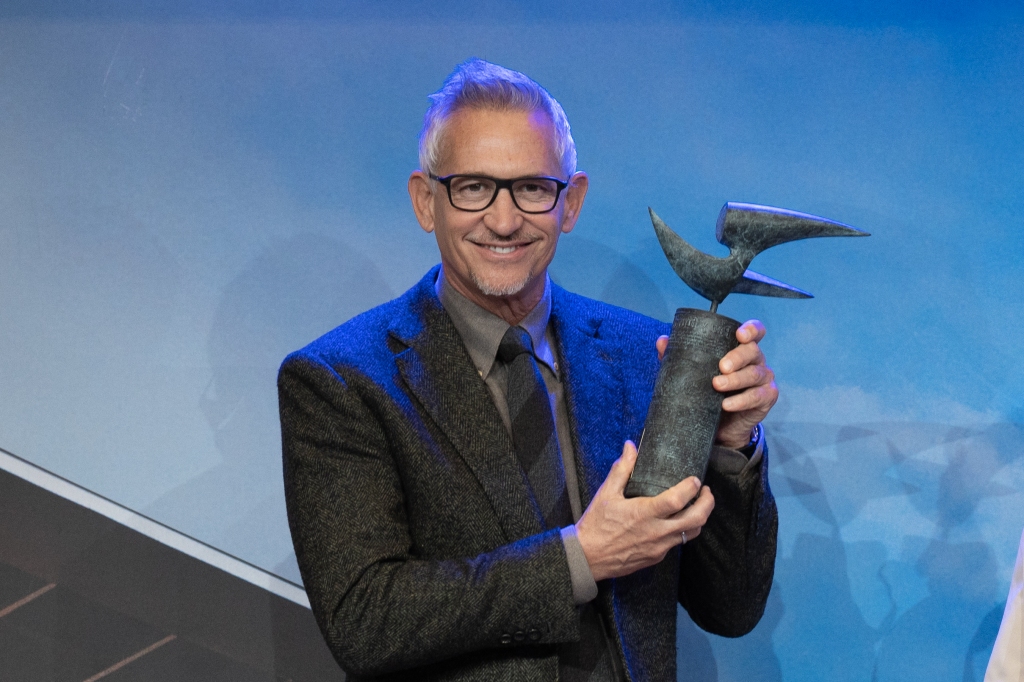Soccer’s governing body FIFA estimates that five billion people will tune in to watch the Qatar World Cup, marking a new record for a global sporting event. This will be a spectacle like no other.
The World Cup tends to put a country’s social order under the microscope. Spain, Argentina and Russia are among previous hosts whose politics has drawn opprobrium. No country has been as scrutinized as Qatar, however. Ever since FIFA made the contentious decision to award the tournament to the Gulf state, controversy has followed, posing questions for participating nations, broadcasters and sponsors.
The country was awarded the tournament 12 years ago amid allegations of corruption within the highest echelons of FIFA. Since then, that FIFA regime has fallen, and Qatar’s record around gender and LGBT+ equality has been in the spotlight. Critics have questioned not only the country’s human rights record but also its suitability due to harsh weather and limited infrastructure. A shocking number of migrant workers have died building the stadia. According to a Guardian report, 6,500 migrant workers have died in the country in the last decade.
Disgraced former FIFA President Sepp Blatter, who is banned from football activities until 2027 over corruption allegations, admitted this week it had been a “mistake” to award the tournament to Qatar. Speaking on a BBC podcast, he said the state was “too small a country” to host it and that FIFA had subsequently adjusted its selection criteria, adding: “Since then, social considerations and human rights are taken into account.”
The unease grew this week when former Qatari international player and World Cup ambassador Khalid Salman told German public broadcaster ZDF that homosexuality, which is illegal in Qatar, was “damage of the mind” — an outburst that Human Rights Watch called “harmful and unacceptable.”
Moral maze
The World Cup begins on November 20 and will run for a month, featuring former winners such as Brazil, Argentina, Germany, France, Spain and England. It marks the first time a World Cup is being played in the Middle East. The unforgiving climate has dictated that the tournament is being played in November rather than the traditional months of June and July. The dating will disrupt many league seasons, including those in the lucrative European market.
The event poses a moral maze for the biggest names in the game.
Gary Lineker, the former England star who is fronting the BBC’s World Cup coverage, told The News Agents podcast he is “not worried about pissing off the hosts.”
“The BBC has not said exactly what we want to say but I think it’s very important we talk about the issues involved,” declared Lineker when pressed on what the UK broadcaster expects of its presenting team.
Amid growing expectation that LGBTQ+ fans will have to avoid public displays of affection if they attend the tournament, Lineker also said he “hopes [gay people] behave as they would and have fun.”
Civil partnerships are not recognized in the Gulf State and LGBTQ+ campaigning is outlawed. Peter Tatchell, the prominent LGBTQ+ activist who protested and was detained in Russia ahead of its World Cup in 2018, held a LGBTQ+ rights protest in Qatar two weeks ago but was deported by police.
Shortly before he was approached by authorities, he said: “There can be no normal sporting relations with an abnormal regime like Qatar. It is a homophobic, sexist and racist dictatorship. Qatar cannot be allowed to sportswash its reputation. It is using the World Cup to enhance its international image. We must ensure that the tyrant regime in Doha does not score a PR victory.
“I did this protest to shine a light on Qatar’s human rights abuses against LGBT+ people, women, migrant workers and liberal Qataris. I am supporting their brave battle against tyranny.”

Speaking out or staying quiet
Other than Lineker, who is often outspoken on social media about political issues, most high-profile presenters have kept quiet.
Deadline approached around half a dozen prominent BBC and ITV pundits heading to the World Cup, all of whom declined to be interviewed or did not respond. The broadcasters also declined interviews with executives.
Both the BBC and ITV told us they will “address the topical issues” via their sports and news teams, while stressing that they have no control over where the World Cup is hosted.
“ITV’s World Cup tournament coverage will focus on the football, but will not shy away from the controversies off the pitch,” added a spokesman for the the commercial broadcaster. News reports on the controversies are expected from both around the time the World Cup kicks off on November 20.
In the U.S. Fox Sports and Spanish-language network Telemundo will broadcast the tournament. The executive producer of Fox Sports’ coverage, David Neal, has been hit with criticism after stating the network’s coverage would focus on the sports and not the surrounding issues. “Our stance is if it affects what happens on the field of play, we will cover it and cover it fully,” he said. “But if it does not, if it is ancillary to the story of the tournament. There are plenty of other entities and outlets out there that are going to cover that. We firmly believe the viewers come to us to see what happens on the field, on the pitch.”
Meanwhile, sources close to Qatar-owned beIN Media Group, whose chairman is Paris Saint Germain President Nasser Al-Khelaifi, said that concerns would be addressed by footballer-turned-primetime-pundit Gary Neville. Neville is frequently outspoken online about social justice issues so his decision to work for beIN has caused a stir.
The pundit was made to squirm recently when he was lambasted on an episode of BBC panel show Have I Got News For You. He countered: “My view always has been you either highlight the issues and challenges in these countries and speak about them, or you basically don’t say anything and stay back home, and don’t go. I’ve always said we should challenge them.”
He also told The Daily Mail: “Saudi Arabia have come into our country [the UK] to own Newcastle [United Football Club], and they’ve got terrible human rights issues over there, and people work for them in this country. We either decide that we collaborate with these countries, and try and impact change through football, which is what I think we should always do, or we say we’re never going to let them play sport.”
BeIN was itself in hot water last year when former Egyptian footballer Mohamed Aboutrika used a network appearance to describe homosexuality as “against humanity” and a “dangerous ideology” after Egyptian star Mohamed Salah took part in the UK Premier League’s Rainbow Laces campaign against homophobia in football.
BeIN sources said that swift action against Aboutrika — he was taken off air for several weeks and the network promoted the Rainbow Laces campaign — shows they are primed to deal with any future incidents, but the debacle proved a headache for the organization.
Campaigns
Stonewall, the UK-based LGBTQ+ group that runs the Rainbow Laces campaign, has reported the proportion of sports fans who think homophobic remarks are acceptable in sport has nearly halved in five years, from 25% in 2017 to 14% in 2022 but has expressed concerns over Qatar’s human rights record.
Stonewall’s Director of Communications and External Affairs, Robbie de Santos, told Deadline: “LGBTQ+ people in Qatar are criminalized and persecuted for simply existing and cannot compromise who they are. It’s vital that those of us with influence, including broadcasters, make clear that they expect Qatari authorities to respect and uphold freedom of assembly and expression and the rights of all, including LGBTQ+ people.
“In 2022, it is deeply concerning that countries that have appalling human rights records are rewarded with the rights to host one of the world largest sporting tournaments.”
Several campaigns will be running in Qatar.
Led by the Netherlands, nine European nations have backed the One Love Campaign to promote inclusion and equality. They will wear an armband featuring a multicoloured heart symbolic of diversity.
That campaign is yet to be recognized by FIFA but the nations insist they will push on regardless and the likes of England captain Harry Kane have expressed public support, along with the FA, the English football association. The campaign includes commitments from these nations that they will continue to spotlight injustice following the World Cup.
Some nations have been bolder than others in their protest.
Denmark has made one of its World Cup kits black to honor migrant workers who died building stadiums, while 16 Australian footballers released a video raising concerns about the “suffering” of migrant workers and the prevention of Qatar’s LGBTQ+ community “to love the person that they choose.”
In France and Switzerland, giant outdoor screens — normally a World Cup staple — have mostly been cancelled in protest of social conditions. Tennis star Yannick Noah and cyclist Romain Bardet have both publicly stated they won’t be watching, although Zinedine Zidane, who helped Les Bleus win the World Cup in 1998, urged fans to “leave the controversy aside.” This is a sentiment echoed by a number of football executives from the Middle East, who have been keen to “separate sport and politics”.
Hummel, which makes Denmark’s kit, has said it does not want its branding visible during the tournament. Meanwhile, four main tournament sponsors — AB InBev/Budweiser, Adidas, Coca-Cola and McDonald’s — have stated their support for financial compensation for migrant workers in Qatar.
Ella Knight, a Migrants Labor Rights Researcher for Amnesty International, has been helping the organization examine the issues of migrant workers rights in Qatar for the past decade, and she said the campaign group plans to keep monitoring long after the tournament ends.

“Qatar will seek to host future sporting events — they are already bidding for new tournaments — so from our perspective we see this as anything but the international media’s last opportunity,” she told Deadline. “Lots of people talk about the legacy of the World Cup but if you are genuinely interested then you have to follow up.”
Knight conceded that the “reform process has sped up” in Qatar since the world’s eyes have been trained on the nation, adding: “The key will be what happens once these eyes have moved on.”
Hypocrisy?
The west’s critique of Qatar has also drawn allegations of double standards. One UK exec working on World Cup coverage recently pointed out that social justice concerns aren’t unique to the Gulf state and that western countries have accepted investment from those same states when it has suited them.
“It’s difficult to draw the line here,” they said. “China has a terrible human rights record, Russia has issues with LGBTQ+ people and you can look to the U.S. with abortion rights or England with hooliganism before the Euros final, too. Yet they’ve all held tournaments recently. There are parts of Asia and the Caribbean where it’s impossible to be gay but the Middle East gets criticized far more heavily.”
Another industry source we spoke to lambasted the western media for coverage “tinged with Islamophobia and Orientalism.”
“There is a lot of anger about how the tournament was awarded to Qatar and that has veered into these stereotypes,” they added. “That kind of reporting has led to ‘othering,’ which isn’t helpful as it blurs the line between concern for human rights issues and what is simply prejudice. This in turn takes legitimacy from the very serious issues that have been raised.”
What’s clear is that the upcoming tournament has once again exposed the fault lines behind the ‘beautiful game.’ It is a game increasingly fused with geo politics.







